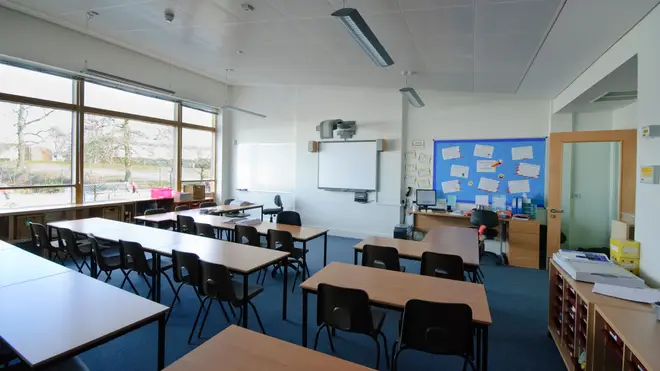
Shelagh Fogarty 1pm - 4pm
7 September 2021, 00:56 | Updated: 7 September 2021, 01:30

Extreme views like racism, homophobia and conspiracy theories are widespread in classrooms across England, it has emerged.
Schools lack the resources to teach pupils how to discuss or reject dangerous views, with building resilience to such content "highly varied" due to limited space in the curriculum, a study carried out by the University College London (UCL) Institute of Education found.
It comes just days before the 20th anniversary of the 9/11 terrorist attacks in the US, with charity Since 9/11 commissioning the study.
Academics spoke to 96 teachers, finding that staff were concerned about the increase in pupils looking at hateful content online. They also felt that it had been "exacerbated by the pandemic and lockdowns".
The majority said they had heard pupils discuss conspiracy theories and express far-right extremist views in their classroom, as well as "extremist views about women" or Islamophobia.
However, teachers were reluctant to address the issues out of fear that they would get it wrong, "especially on matters related to race".
Read more: Tony Blair warns Islamist terrorists could launch post-Covid 'Bio-Terror' attack
Read more: 'Topshop terrorist' who shared IS execution videos on social media jailed

Racism now is worse than in the 1980s, caller tells David Lammy
It comes after the boss of MI5 previously revealed that agents were investigating teenagers as young as 13 linked to extreme right-wing terrorism.
Director-general Ken McCallum said in July that the presence of teenagers was a "rising trend in MI5's counter-terrorist case work" and more so in extreme right-wing investigations.
Dr Becky Taylor, from the UCL Centre for Teachers and Teaching Research, said: "This report shows that some schools fail to move beyond surface-level explorations of violence, extremism and radicalisation; however, it is without doubt that schools can play an important role."
She added: "Education policies must consider the fact that some schools may need more help than others to build on what they already have in place.
"Engaging well with their local communities and ensuring that schools and teachers are supported and appropriately resourced can help young people to problematise 'hateful extremism'."
Following the findings, the study called for teachers to be given better training to lead open discussions in the classroom about extremism, with hopes that they could teach pupils how to reject, and respond to, dangerous ideologies.